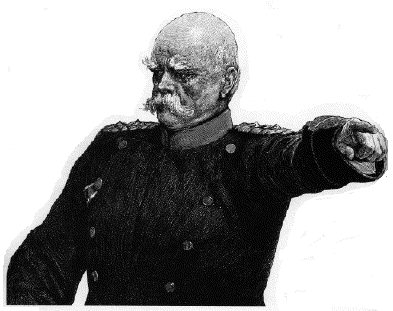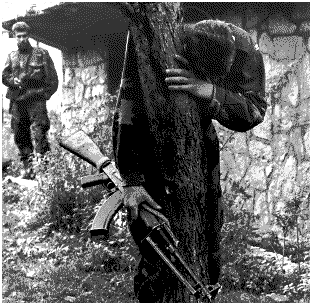Nicholas Mosley
(Dalkey Archive)

The best writing comes in the front-line scenes, and then in the last battle of them all: where Mosley meets (and marries) Rosemary, the "chosen rose from the rosebud garden of girls."
- I bumped into Rosemary again some month later in a coffee-bar in Oxford. I said, "Do you remember me?" She said "Yes." I said "Good." She said "I thought you were that murderer." There was a murderer on the loose at the time who was said to chop up women and dissolve them in the bath. I thought ... Well this indeed is a singular signal that one cannot precisely explain; but could it fit in a novel?
Nicholas Mosley served in World War II in North Africa. He participated in some of the most grueling fighting in central Italy. He received the British Military Cross for leading his squad in the battle of Casa Spinello. And shortly after receiving the MC he considered shooting himself in the foot so he could be "invalided out."
There are many moments during the war when he puzzles over the fact that he does not cut and run. He decides that he was "frightened, yes, but what I was most frightened of was not being able to stand the fear: and then what would happen? The fabric of the mind would crack, and I would fall through?"
Too, he wondered why he was not killed. "People who survive in battle while others die sometimes say that they feel guilty; but unless there are particular circumstances this seems senseless: the whole experience is one of it being totally out of one's control."
- The myth of the bullet that has one's name on it often seems appropriate; so why not an image of an unaccountable angel nanny?
"An unaccountable angel nanny" is an image to remember, and like much of Mosley's writing, it is a bit silly, but to the point. Mosley loathes the war in which he served so gallantly. After leaving the military in 1946, he planned to spend his time studying philosophy at university to try to discover why men have to murder each other in such a brutal way. His writing shows the good and the bad of it: the camaraderie of the men, the mesmerizing effect of it while one is in extreme danger. It also shows the boredom of it, the foolishness of it all.
Time at War only lets us down when it falls into juvenilia. Mosley was but twenty years old when he started in the military; he drew much of this book from old letters --- those he sent to his friends and lovers, to his sister and his father. Many of them have to do with his reading, along with questions of philosophy --- why are we here, what did Nietzsche mean by ‹bermensch,
- Who has organized the chaos of his passions, given style to his character, and become creative. Aware of life's terrors, he affirms life without resentment.
What does our god think he is doing?
These long, often redundant letters are quoted at length. The juvenile poetry Mosley wrote so long ago, one of which is quoted here, is quite awful.
 But the complaint is minor. We have long ago forgiven Mosley his sins --- see our review of Look at the Dark --- because he is a fine writer, a natural-born fretter, a builder of suspense, a devotee of lightly self-mocking English humor.
But the complaint is minor. We have long ago forgiven Mosley his sins --- see our review of Look at the Dark --- because he is a fine writer, a natural-born fretter, a builder of suspense, a devotee of lightly self-mocking English humor.
He is also honest. He does not hide --- nor does he burnish --- his youthful stuttering, his early homosexual affairs, his terror at being in the firing line, quite inexperienced, in command of twenty-five men.
His father was, by-the-bye, a notorious, self-proclaimed fascist, in the time of Hitler and Mussolini, when being such in England was, to say the least, unpopular. Mosley tells us that the newspapers of the day were full of the hullabaloo that erupted when --- in the midst of the war --- the British government freed the senior Mosley from jail.
His family had to spirit him away, hide him from the ire of the public at large. It is as if you woke up tomorrow to find out that you were the beloved child of Kim Jong Il of Korea or Mahmoud Ahmedinejad of Iran.
Our author seems to have survived being son to one of the most hated men in England, although most of his political views are a full 180° from his father's. Still, there are no few surprises when he reveals the closely held beliefs of Oswald Mosley: "He hated war. His proposals to prevent it had involved --- it is true --- trying to turn the country into a sort of harmonious boy-scout's camp run by an impossibly benign elite."
- He at times even seemed to understand that this was not possible; but he thought it had to be tried. He used to tell the story of a conversation he had once had with Lord Beaverbrook, to whom he had said --- "You are lucky in England to have got me as a fascist leader: you might have got someone far worse!"
 Despite his benign philosophical view of dad, all was not easy for young Nicholas. At one point, he had just hitch-hiked back to the front to resume fighting the Germans who had invaded Italy late in the war. "When I gave my name to the adjutant he said without looking up --- 'Not any relation to that bastard?' I said 'Yes, actually.' He said quickly 'My dear fellow, I'm so frightfully sorry.'"
Despite his benign philosophical view of dad, all was not easy for young Nicholas. At one point, he had just hitch-hiked back to the front to resume fighting the Germans who had invaded Italy late in the war. "When I gave my name to the adjutant he said without looking up --- 'Not any relation to that bastard?' I said 'Yes, actually.' He said quickly 'My dear fellow, I'm so frightfully sorry.'"
We never learn if the adjutant is sorry merely for his thoughtless remarks, or is sorry that Nicholas had such a weird old man.